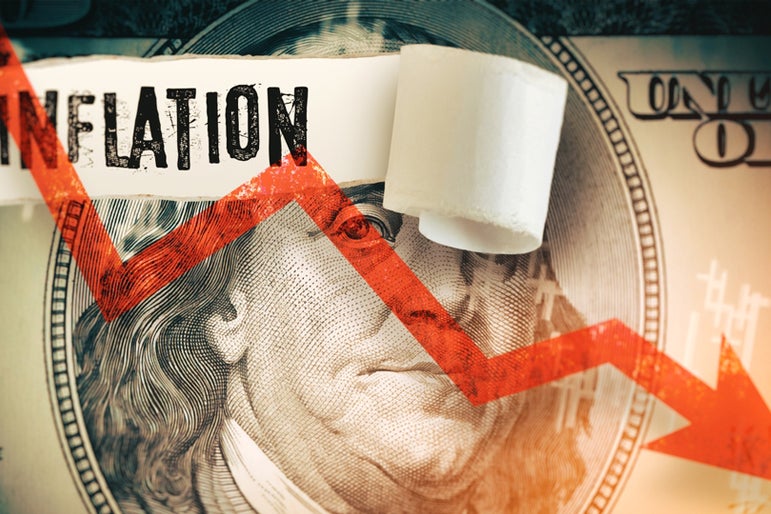[ad_1]
As the Federal Reserve hiked its policy rate by over four percentage points in 2022 to tackle rising inflation, the U.S. Treasury market registered a record annual loss during the year.
What Happened: The U.S. bond market index declined 12.5% during the year, the most in its history, reported Bloomberg. The worst months for the index were September (-3.45%), March (-3.11%) and April (-3.10%), the report said.
See Also: How To Invest In Startups
Yields hit their highest in the October-November period following which they started declining as inflation began to show moderation and Federal Reserve officials slowed the pace of policy tightening.
Inversion: The yield curve inverted, with rates for five-year treasury notes first surpassing those for 30-year securities in March, while the gap between two- and 10-year yields also flipped. The report said that these inversions hit historic extremes, implying that investors anticipate high short-term yields to cause economic damage.
The inversion of the two- to 10-year curve hit as much as 85.2 basis points on Dec. 7, before concluding 2022 at close to 56 basis points. The five-year premium over the 30-year rate at one point hit as much as 46.8 basis points, the report stated.
The Vanguard Total Bond Market Index Fund ETF BND and the iShares Core US Aggregate Bond ETF AGG lost over 14% in the last one year.
2023 Outlook: For 2023, many US interest-rate strategists believe that as long as labor-market conditions soften and inflation declines further, treasuries will extend their recent rally, taking yields lower and steepening the curve in the second half of the year, the report said.
[ad_2]
Image and article originally from www.benzinga.com. Read the original article here.

